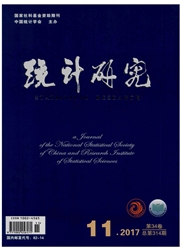

 中文摘要:
中文摘要:
在金融市场上,投资者经常表现出非理性行为,那么,什么样的投资者才能更好地避开金融投资中的非理性陷阱呢?本文使用生存分析方法,通过Cox比例模型,对基金投资者卖出行为的概率进行了研究。这种方法不仅可以避免为生存时间设定一个具体的概率分布;同时还可以方便地将时依协变量纳入方程之中进行分析,研究各种变量对生存时间的影响。通过对2002-2010年期间我国6290个机构投资者和101多万个人投资者投资行为的分析,我们发现基金投资者个体的"成熟度"和"投资经验"能在很大程度上减少甚至消除其在金融市场上的行为偏差。研究还发现了投资者的"成熟度"和"投资经验"对处置效应的影响程度的非对称性。
 英文摘要:
英文摘要:
Investors often behave in irrational ways when making decisions in financial markets. It is important to answer the question of how to help investors learn their ways out of the irrational behavior patterns. Based on survival analysis method and COX ' s proportional hazard model, this study investigates the probability of fund investors redemption. Not only can this model avoid setting a specific probability distribution for survival time, but also provide a convenient way to involve the time-dependent covariates to test the changes to the survival time due to a change in an independent variable. Using trading data for 6,290 institutional investors and 1,014,425 individual investors from 2002 to 2010, we find that investor sophistication and trading experiences can greatly alleviate and even eliminate their behavior biases in financial markets. We further document that the impact of investor sophistication and trading experiences on the disposition effect is asymmetric.
 同期刊论文项目
同期刊论文项目
 同项目期刊论文
同项目期刊论文
 期刊信息
期刊信息
